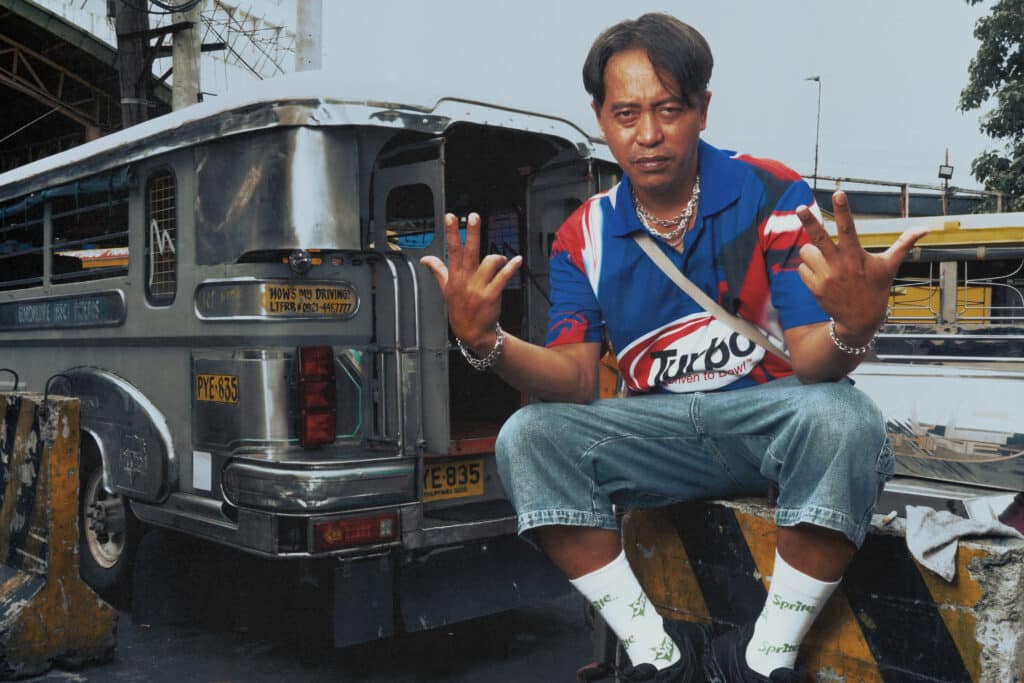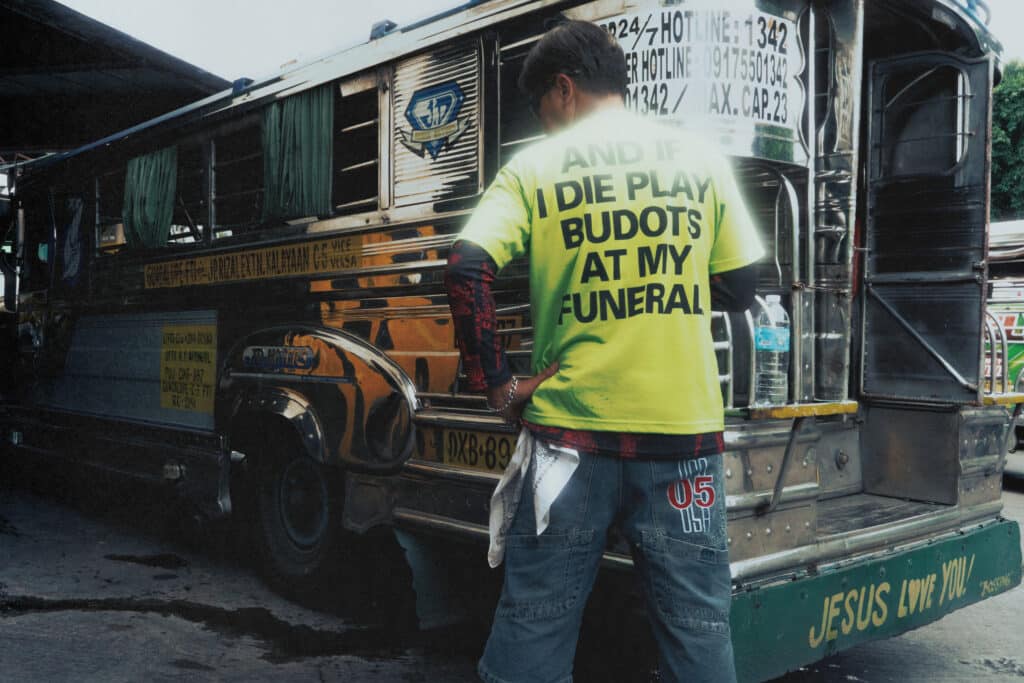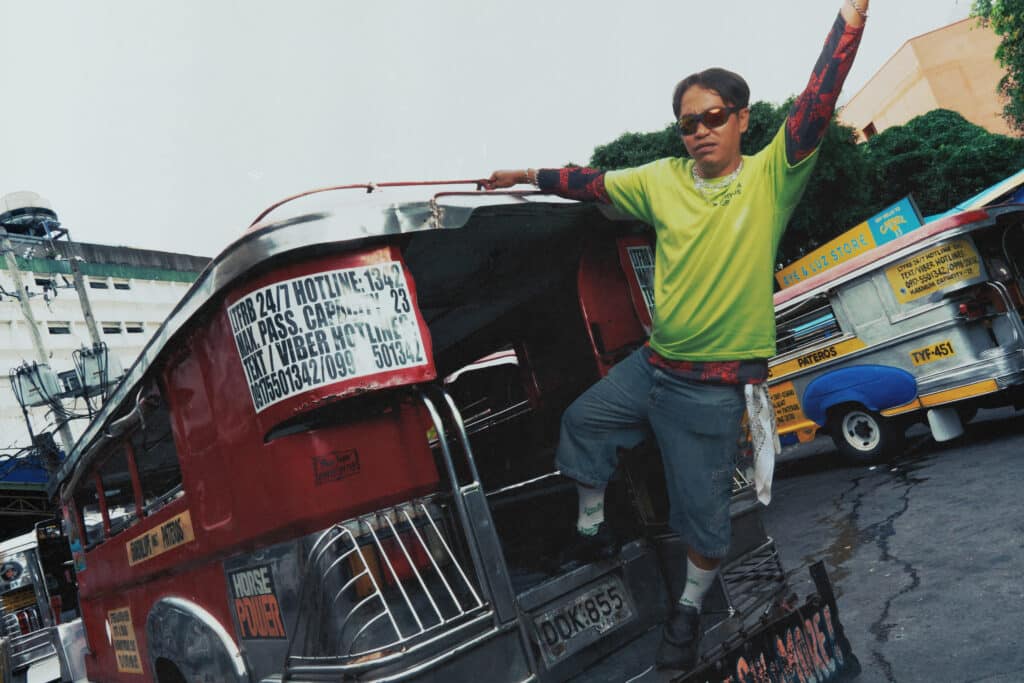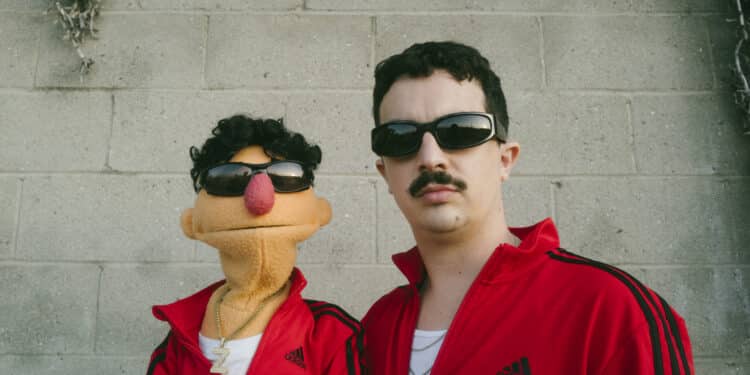Following a game-changing 2024, which saw the release of his debut album, his first festival performance outside the Philippines, and Budots gaining global recognition, DJ Love ushers in 2025 with a dynamic mix for our This Is Home series.
Music has always been a reflection of culture, and in today’s interconnected world, music is more global than ever. As genres like house, techno, drum and bass, dubstep, and more continue to dominate, the boundaries between cultural heritage and modern production are becoming increasingly fluid. However, Budots pioneer DJ Love, whose real name is Sherwin Calumpang Tuna, remains dedicated to uncovering the hidden gems within his cultural roots, offering a fresh and global perspective to contemporary sounds.
Last year was a groundbreaking one for DJ Love. With the release of his debut album Budots World (Reloaded) and his first international festival appearance at Margins United, presented by Eastern Margins at London’s EartH Hackney, the rising artist took time to chat with us about the electronic music scene in the Philippines, his career trajectory and his ambitions to bring Budots to a global audience.
Budots is deeply rooted in the grassroots culture of the Philippines. Known for championing the genre as early as 2009, DJ Love has been immersed in this sound since the early days of DJing back in the slums of the Philippines. Still a high school student at that time, music played an important role in shaping his personal and collective transformation.
Growing up in Davao, I was inspired by the life around me—the energy, noise, struggles, and people’s creativity. I started as a dance instructor and created steps based on our society. Gang riots and drugs were prevalent among the youth at the time, and I wanted to provide a positive outlet. I remixed music inspired by everyday sounds—jeepney horns, lizards, fighting neighbors—and created dance steps that mimicked fighting movements but transformed them into an art form.
DJ Love

Describing the Filipino dance music scene as “diverse” and “vibrant,” DJ Love added, “There are so many talented producers and DJs waiting to be discovered, especially in Mindanao. Budots is just one part of it, and it’s unique because it reflects the grassroots culture of the Philippines. It’s a genre that started in the slums, using sounds from daily life, and it’s evolving as more people discover and appreciate it.”
Budots is my way of saying “yes to dance, no to drugs,” and it became a cultural statement for the youth.
DJ Love
Thanks to social media, Budots gained massive traction and exploded in popularity when it took off on TikTok. In July 2024, Filipino producer DJ Johnrey Masbate‘s Emergency Budots, which sampled Gloria Estefan and the Miami Sound Machine’s “Dr. Beat,” became a viral sensation with its catchy tune and playful elements. With millions of videos created with the sound, the dance trend took off on a world of its own and propelled Budots into a global phenomenon. As it gained traction, more people discovered the rich and lesser-known history behind the genre.
However, DJ Love wasn’t surprised by Budots’ rise in popularity as he attributes it to the genre’s raw appeal, fun, and authenticity. “It resonates with people because it’s rooted in everyday experiences. The sounds—like vehicle horns or TikTok viral voices—are things everyone can recognize,” he said. “Budots is fun and carefree, and that’s something people everywhere connect with, especially in times when they just want to feel good and dance. There’s a universal feeling and energy to the music that I feel everyone can relate to at its core.”

Although the viral hit has brought DJ Love into the spotlight, the influential artist has long been a cherished figure in the Filipino dance music scene. For over 20 years, he has been making DIY Budots at his rural home on Camus Street in Davao City, nestled beside a mini internet cafe shop filled with coin-operated computers.
Budots is more than music; it’s a reflection of how we live. It’s about finding joy in simple things, expressing yourself freely, and staying true to who you are.
DJ Love
Over time, the energetic sound and catchy beats proliferated across social media platforms, making their way into political rallies and national TV to become deeply embedded in the Filpino culture. As a leading figure behind this one-of-a-style sound, DJ Love was invited to headline a Boiler Room set in Manila, further cementing Budots on the international stage. “The opportunity came as part of the rising recognition of Budots,” he explained. “It was amazing to be able to showcase this genre on such a prestigious platform. I’ve always wanted to share Budots with the world, and Boiler Room felt like the perfect stage to do that.”
[Boiler Room] provided an invaluable opportunity to present Budots, its DNA, and its intersections to a global audience, highlighting its cultural significance and the vibrant Filipino dance music scene. The experience was both exhilarating and humbling, reinforcing my commitment to sharing the essence of Budots with the world.
DJ Love
Speaking about his debut experience performing on a prestigious platform, he added, “It was overwhelming but exciting. My knees were shaking, and I was calling out to the heavens for guidance! To prepare, I hyped myself up by listening to Budots on my phone. I told myself, “This is it—time to show the world what Budots is about.” I wanted to show how fun and liberating it is, and I’m glad people connected with that energy.”

Budots is not just about beats—it is about narratives, emotions, and social change. Despite the growing popularity of Budots, DJ Love is careful not to lose what makes the genre unique in the first place. Acknowledging the importance of staying true to his roots and representing the art of community and self-expression, DJ Love emphasized that the genre is all about reflecting the daily struggles and sounds. It also speaks to the way electronic music can translate everyday experiences into art and create space for all to unite and heal.
To truly understand Budots, people need to appreciate its roots in the life of the masses. It’s about turning everyday sounds and struggles into art. It’s also about community and self-expression.
DJ Love
DJ Love shared that his core approach hasn’t changed due to the genre’s rise in popularity; he still creates and performs it based on what he enjoys. That said, it doesn’t mean there hasn’t been some innovation and evolution of Budots over the years. “I’ve also learned to adapt to trends while staying true to the grassroots essence of Budots,” DJ Love said. “It’s about evolving without losing the heart of the genre. I’m always working on new music and remixes inspired by life around me. I also hope to collaborate with more artists to bring Budots to new audiences worldwide. My goal is to showcase the talent of Filipino producers and share the unique story of Budots with the world.”
As DJ Love sat down with us, he also took time to explore the vibrant world of Budots in an exclusive mix for our This Is Home series. He layers in an energetic blend of high-octane tempo and infectious groove, showcasing the playful and lively spirit of the genre. Listen to the mix on SoundCloud!








